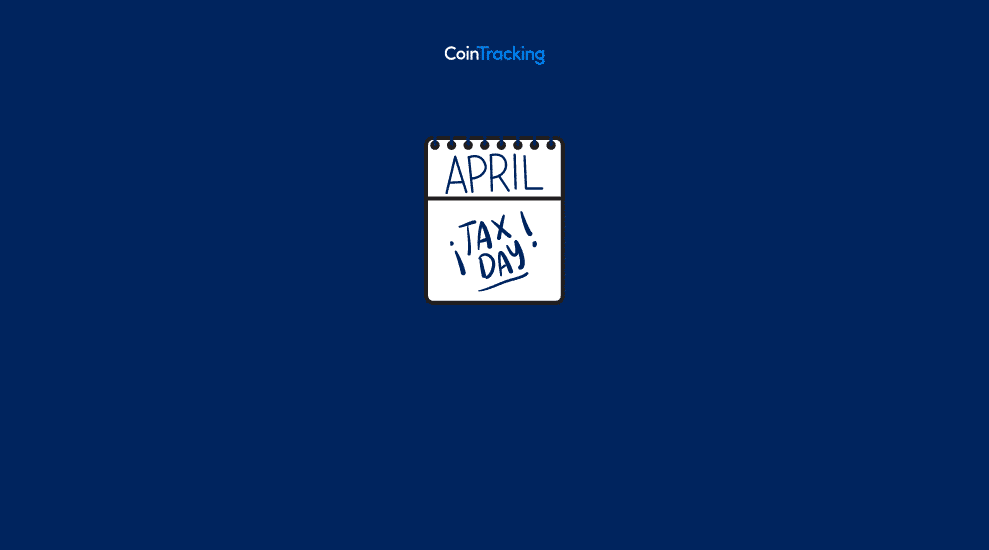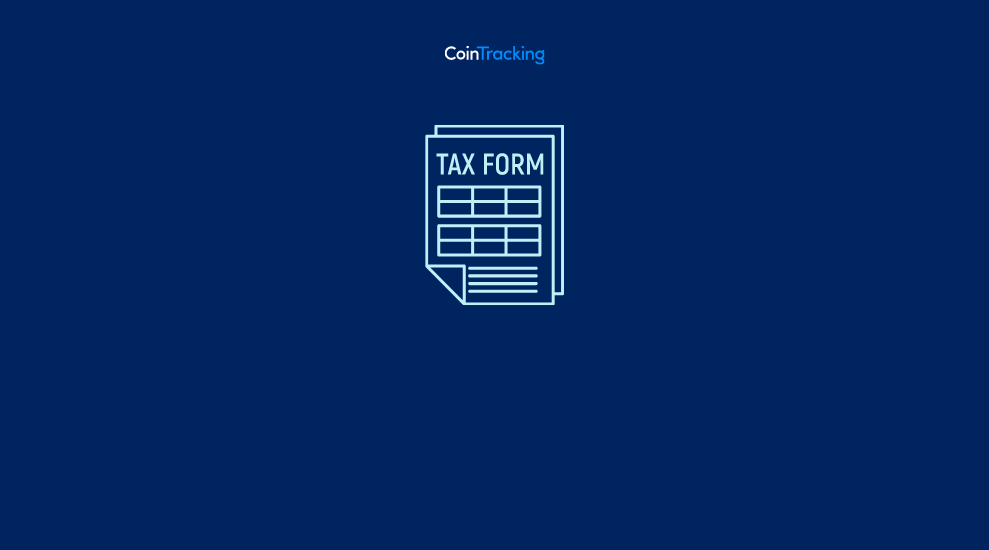What Happens If You Don’t Report Crypto on Taxes [US 2024]
31 Jan, 2024 · 25 min read
What’s the worst that can happen if you don’t report your crypto on taxes? Fines? Penalties? Jail?
Crypto is taxed in the US, with several reporting requirements for investors, from determining gains to recognizing income. Investors need to report their crypto profits and income on the right tax forms and pay taxes over them.
Discover how crypto is taxed, how to report it, what happens if you don’t report crypto on taxes, and more.
Crypto taxes in the US
Cryptocurrency is taxed in the US, with investors having to pay taxes over crypto trading and earning activities.
Investors trading cryptocurrencies need to determine their gains/losses and pay capital gains taxes over profits, with rates ranging from 0% to 37%, depending on the holding period of the trade.
Investors earning income from crypto transactions like airdrops, hard forks, crypto staking or interest vehicles, or crypto salaries are taxed according to their income tax bracket.
Do I have to file crypto taxes?
Yes, in the US, investors have to declare their crypto gains/losses and income each tax season.
If you have gains/losses from crypto trading, you’d need to report them on the right tax forms like Form 1040 and Form 8949, and Schedule D.
If you have income from crypto-earning activities, you’d need to report that income at its Fair Market Value (in USD) in your income tax return.
I forgot to report my crypto taxes: What should I do?
If you forgot to report your crypto taxes or made any mistake on the forms that you filed to tax authorities like the IRS, you can still be safe by submitting a tax amendment to your return.
The IRS allows investors to make amendments to their tax returns up to three years after the filing date of the original tax return, and this includes gains/losses and income from cryptocurrencies.
How to submit an amended tax return
Let’s look at the key three steps to submit an amended tax return for your crypto taxes!
Step 1: Calculate your tax liability
The first step to submitting an amended tax return is to understand what went wrong with your crypto taxes. To get a complete and correct picture of your crypto taxes, you need to:
- Import all of your crypto transactions with crypto tax software;
- Determine the correct amount of gains/losses on your trading and the Fair Market Value (in USD) of all the crypto income you received;
- Generate tax reports with the necessary information to report to the IRS (e.g., sales proceeds, cost basis, gain/losses, date of asset acquisition).
If you misreported your crypto taxes, work with a CPA to help you reach the correct amount of taxes that you need to pay that tax season. To avoid future mistakes, check CoinTracking Full-Service, where a team of experts and crypto tax firms will do everything for you.
Step 2: Complete Form 1040X
After figuring out the amount of gains/losses and income from crypto transactions, you’re ready to file the form that will correct the original Form 1040 and the other necessary tax forms to report cryptocurrencies.
To submit an amended tax return, you need to file Form 1040-X, Amended US Individual Income Tax Return, with similar information to your Income Tax Return.
You have to add the original values from the old tax return and the new calculated values. You also need to submit all the same forms and schedules as you did when you filed your original Form 1040 even if you don’t have adjustments on them.
Step 3: Mail in or e-file your amended return
After completing the Form 1040X, you’re ready to submit your crypto taxes. In the US, you have several services like TurboTax to file your tax returns online, but the IRS also accepts mail-in tax returns.
Can I file my crypto tax amendment with TurboTax?
You can track your crypto portfolio, determine gains/losses and income, and generate tax reports with the help of crypto tax tools like CoinTracking.
You can use filling services like Turbotax in the US to submit the forms with your crypto information. CoinTracking supports TurboTax to make this submission even easier for investors.
If you make a mistake or forget to report your crypto taxes, you can also submit your tax amendment using TurboTax in the US.
Penalties for tax evasion
The IRS has several penalties for the lack of reporting the right forms for crypto and for making mistakes on your tax return regarding digital assets.
Will the IRS know if I don’t report crypto?
Tax authorities worldwide, including the IRS in the US, have the resources, from tracking to forensic tools, to discover what crypto belongs to US citizens.
Besides those resources, including enough agents to go after crypto investors, the IRS also has legal resources to summon crypto brokers operating in the US to share customer information.
Tax authorities worldwide are engaging in agreements to turn the sharing of this customer information even faster.
Can the IRS track cryptocurrency?
Yes. The IRS has many ways and tools to track cryptocurrency activity.
Recently, thousands of crypto investors received letters with amounts due in taxes related to crypto activities since the IRS has the ability to track crypto. If you received one of these letters, a crypto tax CPA could help you correctly access the amount you really need to pay and make sure you’re compliant from that moment forward.
Does Coinbase report to the IRS?
Coinbase has been issuing Form 1099-K to some of their customers for the past few years, and they will continue to issue 1099. Crypto exchanges in the US like Coinbase could be enforced to transmit data of users to the IRS as it has happened in the past because of anti-money laundering initiatives and to track taxpayers who don’t file their crypto taxes.
Do all crypto exchanges report to the IRS?
An exchange in the US can be obliged to transmit information about users to governmental entities, including the IRS. Under the new law passed recently, it looks like all the US based exchanges will need to issue some kind of tax reports to their customers and the IRS.
Do you have to report crypto if you don’t sell?
In short, no. If you only buy crypto with USD and hold it without ever selling, you won’t have to report any capital gains or income. However, you still have to answer the “crypto question” on IRS Form 1040. If you only bought crypto and didn’t sell, you can answer “No,” given the changes made to the 2021 form.
Do I pay taxes on crypto if I lose money?
You might if you traded crypto and had a profit but then traded more and had losses, you’ll still have to pay capital gains taxes on the trade where you had a profit. Let’s see an example.
You bought 1 Bitcoin at $10K. You’ll later sell that Bitcoin for $20K. Later, you buy 1 Bitcoin again at $22K, and then it drops sharply, and you sell it at $15K.
In the first trade, you had a $10K profit, leading to capital gains taxes. The tax rate will depend on your holding period. If the trade of Bitcoin at $20K happens after 12 months of holding it, you’ll have a long-term capital gains tax rate, ranging from 0% to 20%. If you hold it for less than 12 months, you’ll have a short-term capital gains tax rate, ranging from 10% to 37%.
In the second trade, you had a loss of $7K. Since you had a profit before, you can offset this loss from the $10K gains you had before. If these were the only trades you did during the tax year, the capital gains would only be $3K instead of $10K, but you still have to pay taxes even though you also had a loss.
Can you write off stolen crypto?
In the US, you won’t be able to claim a loss for stolen crypto. According to the current tax law, stolen crypto is considered a personal casualty loss, which is no longer tax-deductible. Find out more about taxes on stolen, hacked, or lost crypto.
Frequently asked questions about forgotten crypto taxes
Conclusion
It’s easy to report your crypto taxes nowadays with the wide variety of crypto tools that can help you track your portfolio and calculate your crypto taxes.
In the US and most countries, you have to report your gains/losses and income from cryptocurrencies each tax season. If you don’t report crypto, you’ll face penalties, fines, and even jail time.
Enjoy a smooth tax season with tools like CoinTracking to calculate your crypto taxes and use one of our integrations (e.g., TurboTax) to submit them.
Share this









